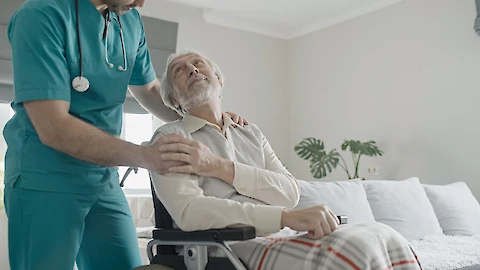
Caring for seniors with chronic diseases like diabetes and high blood pressure can be challenging. As a caregiver, you play a crucial role in managing these conditions and ensuring your loved one's well-being. In this blog, we’ll explore monitoring chronic diseases, understanding symptoms, and recognizing complications. We'll also provide helpful tips about organizing medical information, coordinating care among healthcare providers, and utilizing modern technology for better disease management.
Common Chronic Diseases in Seniors
As a caregiver, knowledge is your cornerstone. Common chronic conditions in seniors include diabetes and high blood pressure, both of which require constant monitoring. For diabetes, you'll need to be aware of blood sugar levels, frequent urination, excessive thirst, and lethargy. On the other hand, high blood pressure is often silent but can cause headaches, blurred vision, chest pain, and shortness of breath.
Monitoring Chronic Diseases
Monitoring these diseases is essential not only for managing the condition but also for catching and preventing complications. Keep a close eye on the symptoms and consult a healthcare professional if anything seems off. Remember, quick action in times of change can prevent longer-term issues.
Organizing Medical Information
Keeping track of a senior's medical history, medicines, and healthcare visits is integral to managing a chronic condition. Create a system that works for you, be it a dedicated notebook or a digital spreadsheet. Ensure it's easy to update and share with healthcare providers when needed.
Coordinating Care Between Healthcare Providers
Many seniors have more than one healthcare provider. As a caregiver, you should serve as the point of communication between them. Make sure they're all in the loop about current medications, changes in health, and any new treatments. Effective communication can reduce the risk of medical errors and ensure a cohesive care plan.
Using Technology in Chronic Disease Management
Don't shy away from using technology to help you manage your loved one's health. Numerous devices and apps can monitor vital signs, remind of medication times, and store medical records digitally. These tools not only make your role easier but also more effective.
Proactive Management of Chronic Diseases
Proactive management of chronic diseases is all about anticipating and preventing complications before they occur. This means regular visits to healthcare providers, sticking to medication schedules, and encouraging a healthy lifestyle. It might also involve modifying the home to prevent falls or other accidents. By being proactive, you can significantly improve your loved one's quality of life and perhaps even slow the progression of their disease.
Get Senior Care Support and Encouragement
Taking on the responsibility of monitoring a loved one's chronic disease might initially feel overwhelming. But you can effectively manage their health condition with understanding, organization, cooperation, and a little help from technology. Your role as a caregiver is invaluable, and your efforts have a significant impact on your loved one's quality of life.
If you're in Boca Raton, Palm Beach County, and need help caring for a loved one with a chronic condition, contact Senior Helpers Boca Raton. We're here to support you in providing the best care and quality of life for your loved ones.